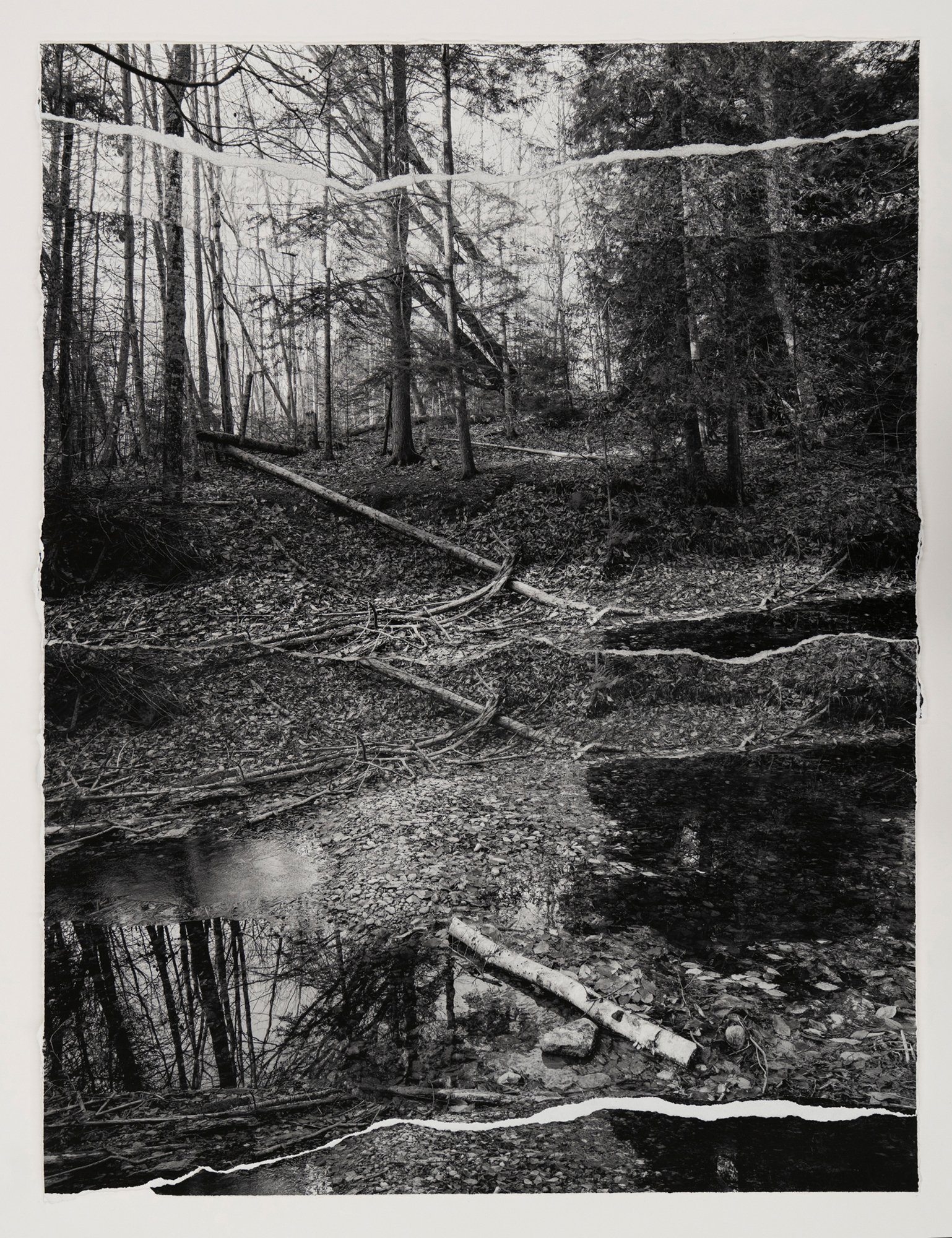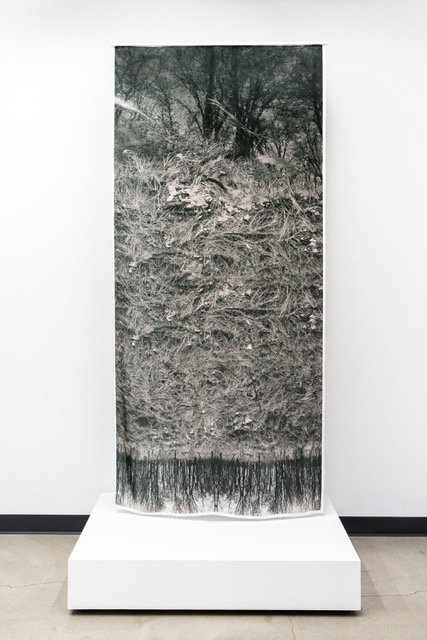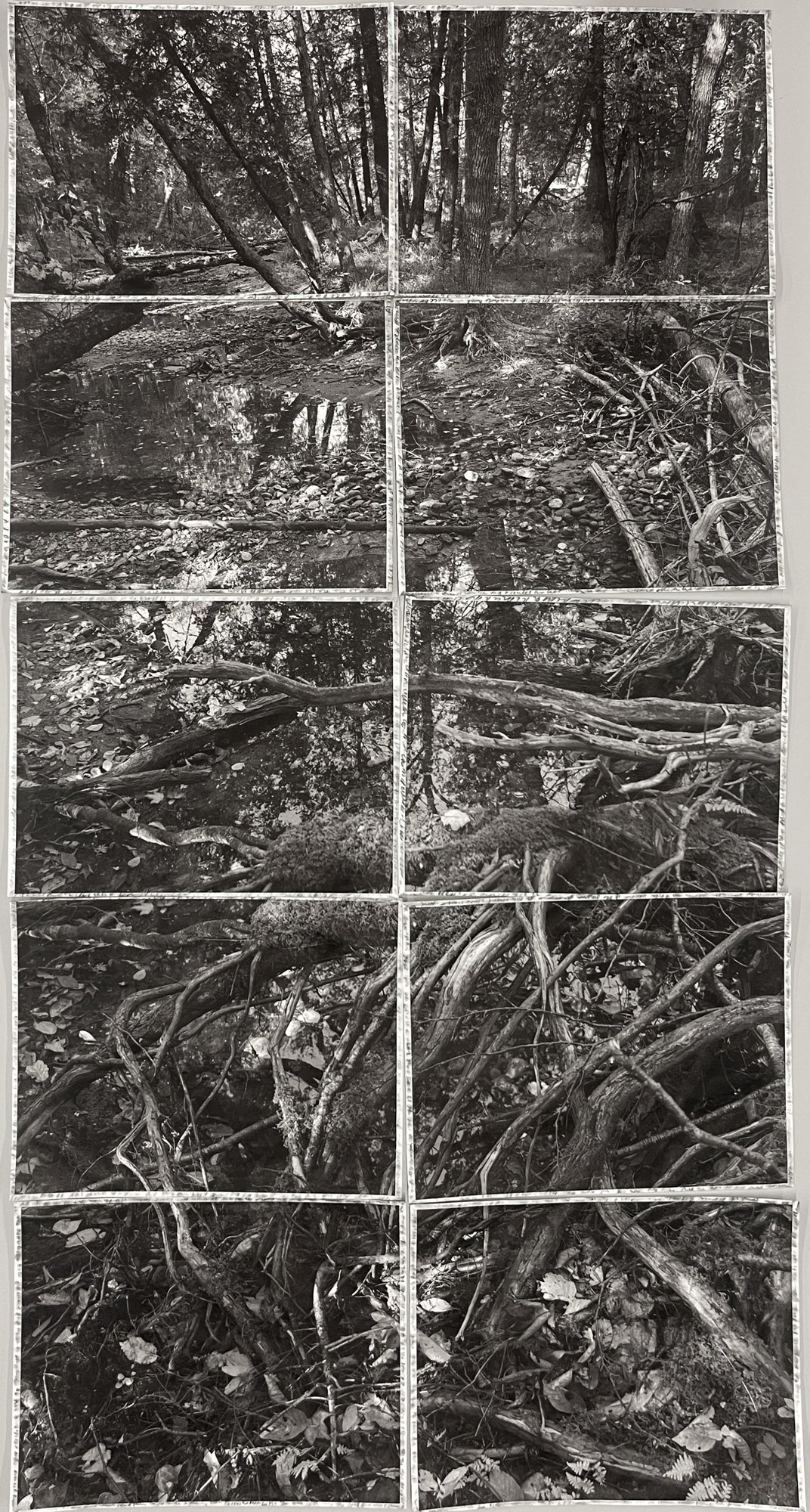Terri Warpinski
Restless Earth
Carol Crow Fellowship Recipient Exhibition
December 12, 2024 - February 9, 2025
Opening Reception
Thursday, December 12, 2024 - 6-8pm
© Terri Warpinski
This research-intense, mixed media, assemblage, and installation work is rooted in the histories and futures of our fragile ecosystem.
I am particularly interested in unfolding the complex and messy patterns of our species’ impacts on the environment, and our ongoing renegotiation of its value to all forms of life. These works are rooted in the histories and futures of our fragile ecosystem from the examination of land preserves and conservation areas as they undergo a process of re-wilding and ecological recovery, to the imminent death of our glaciers and other tragic losses due to the rapid warming of the Earth.
In connecting, disrupting, inverting and fragmenting lens-based imagery, through the integration of text in multiple forms, and the incorporation of found objects and materials, I forge relationships between personal, cultural, and natural histories. Through my work I seek to make visible a state of mind, a way of perceiving and connecting information and ideas across time and space that are not entirely visual in nature; and in doing so, construct a narrative that is multi-stranded and open-ended addressing various notions related to time, observation, destruction and restoration, the accumulation of knowledge, and the shadow of memory embedded in place.



About the Artist: Terri Warpinski
Terri Warpinski explores the complex relationship between personal, cultural and natural histories. Warpinski received a B.A. in Humanistic Studies with an emphasis in Studio Art from the University of Wisconsin, an M.A. in Drawing and Photography and an M.F.A. in Photography from the University of Iowa. Warpinski was distinguished as a Fulbright Senior Fellow to Israel in 2000-2001, as Professor Emerita in 2016 after a 32-year teaching career at the University of Oregon, was the Honored Educator of the Society for Photographic Education and received a DAAD Research Fellowship to Berlin for her long-term project Death|s|trip in 2018. Upcoming solo exhibitions include the Photographer’s Eye Collective in Escondido, California (2024), Vincennes University in Indiana (2025), and Blue Sky Gallery in Portland, Oregon (2026).
A native of Northeastern Wisconsin, Terri once again resides along the Fox River in the glacially carved landscape that is the ancestral home of the Ho-Chunk (Hoocąk) & Menominee (Kāēyās maceqtawak) Nations with her husband, David Graham, where they created newARTSpace, a non-commercial artist-driven exhibition space.
Questions?
For questions about this exhibition, please contact Exhibitions
Exhibitions and Programs Coordinator, exhibits@hcponline.org or 713-529-4755, ext 16.
Juror’s Statement: Liz Wells
Restless Earth draws on camera expeditions into the Wisconsin woodlands supported by extensive historical research. Terri Warpinski offers a complex exploration of forests that reminds us of their significance and, more particularly, the inter-connectivity of environmental phenomena. We are invited to reflect on questions of sustainability through the accumulation of visual imagery and written comments. Large installations suggest the immersivity of woodland experiences. Smaller photographs draw attention to detail. But not all is what it might seem. For instance, on close inspection, the bird nests formed of twigs and grasses may also incorporate plastic fragments or shards of fishing line. Or, the fact that only 1% of Wisconsin’s trees remain unharvested provokes pause for reflection, especially since the largest single tract of virgin timberland is on the tribal land of the Menominee. The imagery does not shout at us; rather it quietly points to ecological entropy, reminding us of our responsibilities as stewards of our future.
Robin Wall Kimmerer, who is native American, a professor in environmental biology and author of Braiding Sweetgrass (2013), inter-relates indigenous wisdom and scientific knowledge within environmental conservation and renewal. She advocates against taking from the earth with no consideration for the future. Like-mindedly, Warpinski offers a unique insight that testifies to contemporary ecologically mindful approaches to safeguarding nature. This acts as an alert, and as evidence to be drawn upon within environmental politics. In considering the many excellent submissions for the inaugural Carol Crow environmental award, Restless Earth came to the fore for the integrity of ecological thinking, research methods and photographic realisation that underpins its aesthetic affects and cultural significance.
Reference: Robin Wall Kimmerer, Braiding Sweetgrass. Milkweed editions, 2013/Penguin Books, 2020.

